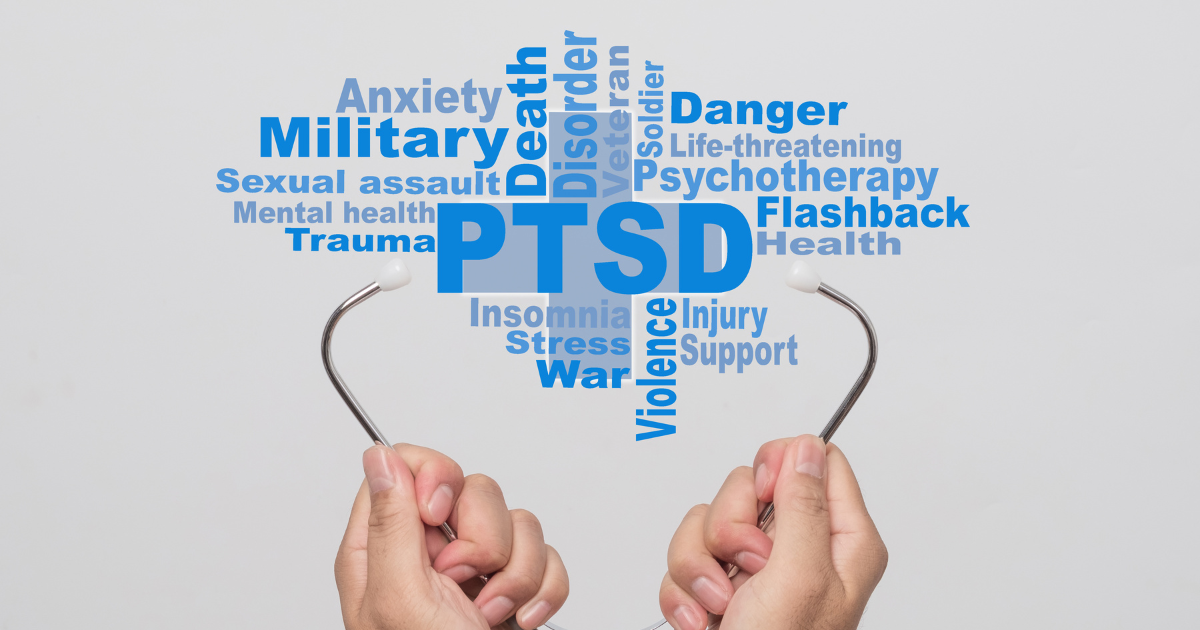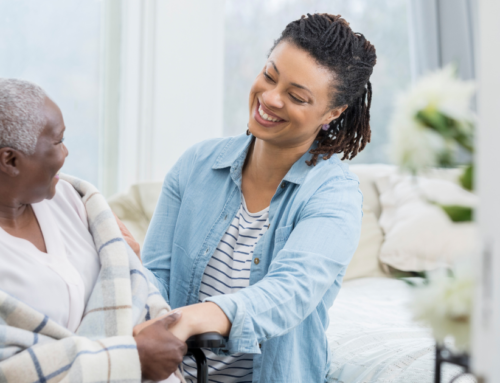According to PTSD United, 70% of adults in the United States have experienced some type of traumatic event at least once during their life. At some point, as many as 20% of them, approximately 44.7 million people, develop PTSD (post-traumatic stress disorder). In addition, an estimated 11% of women develop PTSD, which is twice the rate of men. PTSD was first officially recognized in the 1980s, and the month of June is National PTSD Awareness Month. Millions of seniors struggle with PTSD daily, and many go undiagnosed and untreated. As they age, they find it more difficult to deal with it physically, mentally, and emotionally.
Identifying PTSD in the Elderly
To be clinically diagnosed with PTSD, a senior must have experienced a traumatic event and displayed certain symptoms for at least one month. These symptoms include:
Flashbacks and uncontrollable thoughts
Individuals with PTSD can experience flashbacks, during which they feel like they are reliving the traumatic event. They often can’t control intrusive thoughts that set off flashbacks.
Avoiding triggers
Seniors with PTSD often avoid places, people, and things that remind them of a traumatic event. This can significantly limit their day-to-day activities.
Behavioral changes
People with PTSD are sometimes prone to outbursts of anger that are difficult for others to understand. They can react inappropriately to certain triggers that don’t bother most people and are often easily startled.
Negativity
PTSD changes a person’s thought patterns. They may have more negative thoughts and feel anxious, guilty, shameful, and terrified. They often find it difficult to trust other people.
According to the American Psychiatric Association, major symptoms of PTSD can continue for months or years after the traumatic event.
Supporting Seniors with PTSD
Identifying the signs and symptoms of a senior with PTSD is the first step in supporting them. Knowing that they have this disorder will enable you to help them get the care they need.
Here are five tips on how to support a senior with PTSD:
Remain compassionate and empathetic
Similar to someone with Alzheimer’s disease or another form of dementia, a senior with PTSD has thoughts and feelings they struggle to control. They may suddenly feel like they’re in danger and start acting erratically. This can be frightening for a family caregiver, making it important to remain to understand, compassionate, and empathetic.
Understand there may be co-factors
Seniors with PTSD may also have Alzheimer’s or dementia, increasing their confusion and worsening their symptoms. Some medications can also cause an increase in emotional outbursts.
Manage medication
A psychiatrist helping a senior with PTSD may prescribe an anti-depressant, such as Prozac, Effexor, Paxil, or Zoloft. Keep your loved one’s primary care physician informed if they are advised to take new medications to ensure there are no adverse reactions.
Find a support group
A support group can help with the healing process for a senior with PTSD. It can keep them from isolating themselves, worsening depression and anxiety. Seniors often benefit by hearing from other people who share similar experiences.
For example, if you have a parent who is a combat veteran, there are support groups whose members have also shared that experience. Many PTSD support groups meet virtually, which is helpful for seniors with mobility issues.
Explore alternative therapies
In addition to medications and support groups, there are also alternative therapies that can be helpful for people with PTSD. For example, you may want to check into gentle yoga practice, special breathing techniques, or mindfulness meditation. These can help your loved ones better cope with their PTSD symptoms and improve their quality of life.
AmeriCare Plus Can Help
AmeriCare Plus has been providing compassionate home care for seniors living in Lancaster, Kilmarnock, and Tappahannock, as well as 9 other locations throughout Virginia for over 26 years, including those with PTSD or other cognitive disorders.
Contact today to speak to a caring expert. We’ll help your loved one safely age in place in the comfort of their own home.
Continue Reading
Get a personal assessment.
Call us today at 1.844.407.2273
Schedule your free, no-obligation assessment today!










